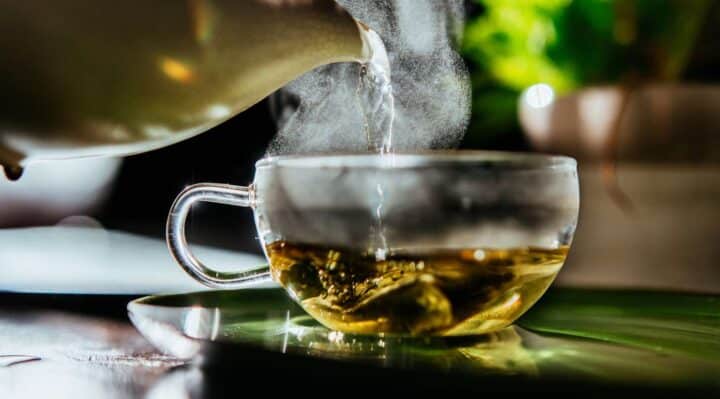Calming tea has a long tradition in many cultures. It is not for nothing that they say: wait and see and drink tea – especially when it comes to stress, inner turmoil and tension. We show you which herbal teas help you with stress when playing www.woocasino.com/en-CA.
USE AND SOME FACTS
A cup of calming tea and a book can create a nice ritual.
For thousands of years, we humans have known about the many positive effects of tea. Not for nothing are the Asian tea ceremonies or the British Five o’Clock Tea.
Calming tea is a support in case of:
- inner restlessness
- stress
- nervousness
- sleep problems
- other nervous stress
You can enhance the effect of the medicinal herbs by really taking your time already for the preparation. Sit down, breathe deeply and enjoy your tea consciously. This way, drinking tea can become a ritual for you and help you relax faster.
Tip: Yoga, meditation, or creative activities such as mandala painting can also help you reduce stress.
Many of the calming teas known today go back to the knowledge of Hildegard von Bingen. She recommended committing to a medicinal herb and creating a ritual. With this you support your brain to create a psychic link. Of course, you can also mix different herbs according to your taste. Below we introduce you to three different herbs for calming tea in a little more detail.
TEA FROM LAVENDER
Lavender not only looks beautiful, it’s great for tea.
Some appreciate the bright purple flower for its intense scent, others for its healing properties. Lavender helps with tension, exhaustion, nervousness, and anxiety. The aromatic tea lowers blood pressure, balances, and helps to fall asleep.
The plant originated in France, Spain and Argentina, but has long since conquered domestic gardens. If you want to use lavender from your garden, it is important to distinguish between true lavender and the ornamental plant. Only real lavender achieves the calming effect.
Preparation:
For one cup (about 250 milliliters) of lavender tea, you need about two teaspoons of dried flowers.
Because of volatile essential oils, you should not boil the water. A water temperature of about 80 degrees is sufficient.
Depending on how intense you want your tea to taste, you can steep it for three to ten minutes.
Tip: To reduce stress in everyday life, you can also use essential oil or make your own lavender oil. Simply massage your temples with it and enjoy the effect.
MELISSA TEA ALSO CALMS YOUS
Perhaps lemon balm grows in your garden.
The Greeks and Romans used lemon balm as a medicinal plant. Today, lemon balm is probably the most popular by far.
But all varieties of lemon balm help with restlessness and insomnia, and also have an antispasmodic effect. This is due not only to essential oils but also to the bitter and tannic substances they contain.
If you are fortunate enough to have a garden where lemon balm grows, be sure to harvest it before it blooms.
Preparation:
For 250 milliliters of lemon balm tea, you’ll need two teaspoons of dried lemon balm.
You can also use fresh lemon balm, just take a little more.
Because of the volatile essential oils, you should not boil the water.
Let the tea steep for about ten minutes. You can drink several cups a day without hesitation.
Note: If you are taking thyroid hormones, you should not drink lemon balm tea, as it may interact with them.
1. JOHN’S WORT
You can recognize the plant by its small yellow flowers.
St. John’s wort is a medicinal plant with a whole range of applications. It is said to help with depressive moods, anxiety, mood swings and sleep disorders.
This is due in part to the active ingredient hypericin, which is located directly in the happiness center of our brain.
The plant blooms from June to September, so you can also collect and dry it. You can use both the leaves and the flowers.
Preparation:
For one cup (about 250 milliliters) of St. John’s wort tea you need two teaspoons of the dried plant.
Pour boiling water over the herbs and let them steep for ten minutes.
You can take one cup daily in the morning and in the evening.
Like most antidepressants, St. John’s wort needs time to fully develop its effects. Therefore, it is best to drink the tea regularly for several weeks. If you do not feel any improvement after two weeks, seek medical advice.
Since the tea contains only small amounts of the active ingredient, you can also use jahannis herb extract and other ready-made preparations. However, since higher doses may interact with other medications (especially the pill), you should talk to your healthcare provider before taking it. Now you have different options of tea to include in your afternoon or evening routine.




